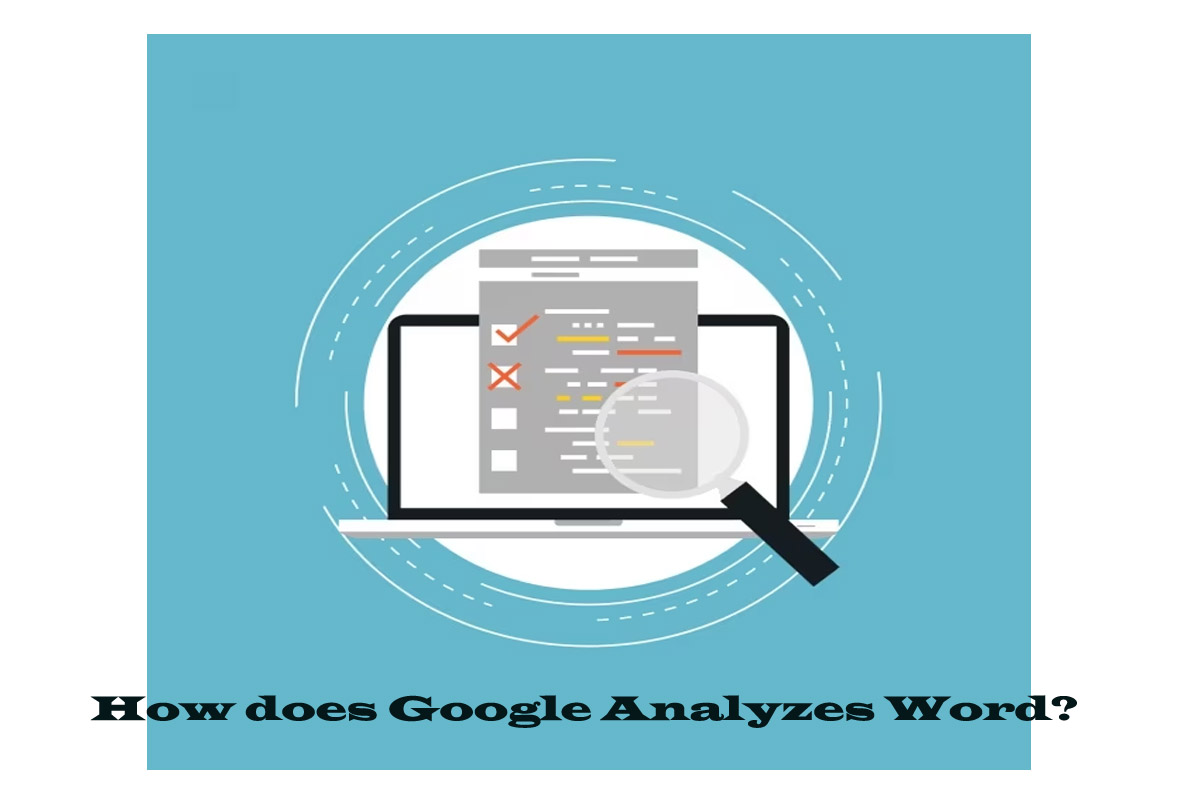How does Google Analyzes Word?
Google Analyzes Word using various methods and algorithms to analyze words and understand their meaning. Here are a few key techniques employed by Google. It employs an index of web pages and associated keywords. When you search for specific words or phrases, Google looks for exact or related matches in its index. This method helps identify web pages relevant to your query.
Google applies NLP techniques to understand the context, semantics, and intent behind words and phrases. It employs sophisticated algorithms to analyze sentence structure, identify parts of speech, and recognize entities such as people, places, and organizations.
Google leverages machine learning algorithms to improve its understanding of words and their meanings. It has trained models on vast amounts of data to recognize patterns, understand language nuances, and predict word relationships.
Google employs word embeddings, such as BERT, representing words as dense vectors in a high-dimensional space. These embeddings capture semantic relationships between terms. By analyzing the proximity of word vectors, Google can infer similarities and connections between words.
Google also considers user behavior and signals to refine its understanding of words. For example, it examines the search queries and interactions of millions of users to improve the relevance of search results. User feedback, such as clicks, dwell time, and bounce rates, helps Google learn and adapt its algorithms.
Google maintains a vast Knowledge Graph containing structured information about entities and their relationships. By referencing this graph, Google can provide more accurate and detailed information about specific words and entities.
It’s important to note that the exact techniques and algorithms used by Google are not publicly disclosed, as they are part of Google’s proprietary technology. The company continuously refines its methods to improve search accuracy and deliver more relevant results.
Stages of Google Analyzes
Crawling: In this stage, Google’s web crawlers, or Googlebot, explore the web by following links from one web page to another. The crawlers start from available web pages and gradually discover new pages through the links they encounter. During crawling, Googlebot collects information about each web page, including its content, URL, metadata, and other relevant data.
Indexing: After the crawling stage, Google indexes the collected information to create a searchable index. The indexing process involves organizing and storing the data in a structured manner.
Google analyzes the content of each web page, extracts key information, and builds an index that allows for efficient and rapid retrieval of search results. This index contains information about words, phrases, and other elements found on web pages.
Ranking: When someone performs a search query, Google’s ranking algorithms come into play. The ranking stage involves determining the most relevant and useful search results to display to the user.
Google’s algorithms analyze various factors to assess the relevance and quality of web pages, such as the content’s keyword usage, backlinks from other authoritative sites, user engagement signals, and many others. These algorithms assign a ranking score to each web page, and the pages with higher scores are considered more relevant and appear higher in the search results.
It’s important to note that these stages are interconnected and constantly evolving. Google continually updates its crawling and indexing processes and ranking algorithms to improve the quality and relevance of search results.
Conclusion
In conclusion, Google Analyzes Word involves three main stages: crawling, indexing, and ranking. During the crawling stage, Google’s web crawlers explore the web, discover web pages, and collect information about them. In the indexing stage, this collected information is organized and stored in a searchable index.
Finally, during the ranking step, Google Analyzes Word through its algorithm various factors to regulate the relevance and quality of content and assign them a ranking score. The page content with higher scores appear higher in the search results. These stages work together to provide users with relevant and useful search results. Google continually refines its processes and algorithms to improve search accuracy and deliver the most pertinent information to its users.

